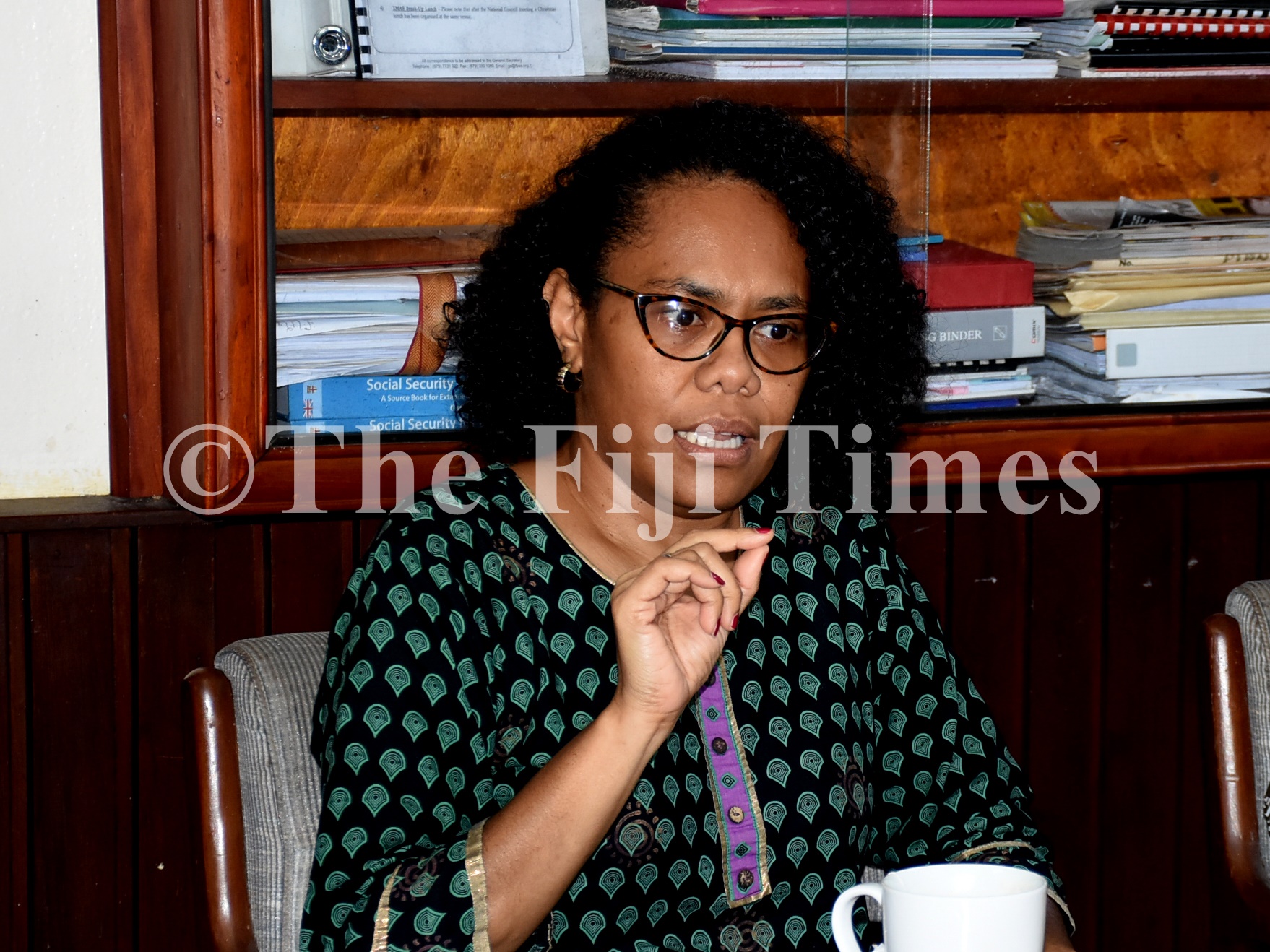Fiji Council of Social Services (FCOSS) executive director Vani Catanasiga has called on the Government to be cautious and treat human trafficking as a cause for concern.
She said with Fiji named as one of the source countries for trafficking in persons, policymakers must not take this lightly.
“This could be a manifestation of what we are engaged with in terms of development, and we need to really look at policy changes that is to do with immigration, employment and even labour mobility schemes,” said Ms Catanasiga.
She said there must be a holistic look at the social implications of these labour mobility schemes and not just their economic impacts.
Ms Catanasiga cited the US State Department 2024 Trafficking in Persons Report released earlier this year which revealed Government had decreased efforts to identify and protect victims of trafficking in persons.
“We have to look at the social implications of these schemes and not just their economical impacts.
“Our policymakers not just our current one are aware of this and many of them have discussed the need for these issues to be addressed.”
Ms Catanasiga cited the United Nations Office on Drugs and Crime (UNODC) Report on the Results of the Fiji National Trafficking in Persons Prevalence Survey which highlighted how Fiji was a transit point for human traffickers.
“Since 2017, there has been a notable increase in foreign workers in these industries from Bangladesh, India, Pakistan, Nepal, Sri Lanka and other countries in Southeast Asia,” the report stated.
“These are mainly male workers between the ages of 25 and 45, attracted to Fiji by favourable working conditions and a chance to migrate or work in neighbouring New Zealand or Australia.
“The FID data in the Fiji Migration Profile of 2020 show that permits issued to foreigners increased from 7400 in 2013 to over 23,500 permits in 2017 and 18,429 in 2019, of which 11,637 permits were for long-term work and 11,770 for short-term work valid for one year.”
The report used by the Asia Foundation also revealed that domestic trafficking was mainly linked to child labour and trafficking of children for sexual exploitation.
“According to informants, since the outbreak of COVID-19, there are more children out of school and involved in street vending or loitering on the streets, begging or working as casual labourers, for example in car washes or on farms.
“There is also an increase in the number of youths between 15 and 24 years old, both female and male, involved in the commercial sex trade in urban and rural areas or in hotspot areas where motels, hotels, yachts and fishing vessels are located.
“An increasing number of situations have been identified where there has been evidence of family complicity in this exploitation.”
Meanwhile, Asia Foundation representative Sandra Kraushaar reaffirmed that Fiji was one of the Pacific island countries now being used as a source country for human trafficking.”
Ms Kraushaar said countries like Fiji have also become a destination for human trafficking.
“Previously, the Pacific was once known just as a transit point,” she said, adding it was no longer happening outside of international countries but happening within Fiji.
“It just doesn’t happen on the borders of our countries, but it is happening within our countries.”
Ms Kraushaar said trafficking in persons was a heinous crime.
“It affects families, communities, nations and right across the region,” she said.
Ms Kraushaar said the media had an important role in raising awareness of human trafficking.
“It’s about raising awareness, exposing traffickers, and it’s about advocating for survivors.
“It’s also about educating the public and it’s about influencing policies and public opinion.”



